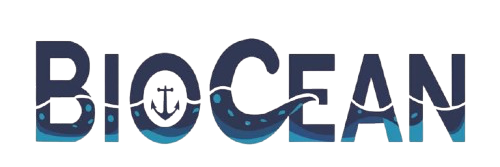Maritime careers are among the most lucrative and adventurous professions. Two primary academic pathways for aspiring deck officers in India are BSc in Nautical Science and Diploma in Nautical Science (DNS). While both courses lead to a career as a deck officer, there are key differences in duration, career progression, salary, and long-term opportunities.
Course Duration
BSc in Nautical Science
- A full-time 3-year degree program.
- Divided into six semesters.
- Covers theoretical and practical aspects of nautical studies before entering onboard training.
- Requires an additional 12 months of sea training after completion.
Diploma in Nautical Science (DNS)
- A 1-year diploma course followed by 18 months of onboard sea training.
- Leads to a Higher National Diploma (HND) or direct Second Mate (FG) exams.
- Shorter classroom training compared to BSc, allowing candidates to start their sea career earlier.
States with Institutes Offering These Courses
India has several states with maritime institutes offering BSc Nautical Science and DNS, including:
- Maharashtra
- Tamil Nadu
- West Bengal
- Kerala
- Goa
- Andhra Pradesh
Job Opportunities
Both courses lead to similar career paths, primarily in merchant shipping as deck officers. Common job opportunities include:
- Deck Cadet (Entry-level role after sea training)
- Second Officer (After clearing Second Mate (FG) exam)
- Chief Officer (After clearing Chief Mate (FG) exam and having sufficient sea time)
- Captain/Master Mariner (Highest deck rank after clearing Master Mariner (FG) exam)
Fees and Salary Expectations
Course fees for BSc Nautical Science range from ₹8-15 lakh for the entire program, while DNS costs between ₹3-5 lakh. Salaries vary depending on experience, shipping company, and rank.
- Deck Cadet: ₹30,000 – ₹80,000 per month
- Second Officer: ₹2.5 – ₹5 lakh per month
- Chief Officer: ₹6 – ₹12 lakh per month
- Captain (Master Mariner): ₹10 – ₹20 lakh per month
Future in Merchant Navy After 10 Years of Service
After a decade in the maritime industry, professionals have multiple options:
- Continue Sea Career: With experience and promotions, seafarers can reach the rank of Master Mariner (Captain).
- Shore Jobs: Opportunities in shipping companies, port management, maritime academies, ship surveying, and marine insurance.
- Entrepreneurship: Some experienced seafarers start maritime consultancy firms or shipping businesses.
- Higher Studies: Marine officers can pursue MBA in Shipping and Logistics, PG Diploma in Maritime Law, or become examiners at maritime institutes.
Career Growth and Higher Rank Achievements
To climb the ranks in the merchant navy, candidates need sea service experience and additional certifications:
- Second Mate (FG) Certificate – Required for promotion to Second Officer.
- Chief Mate (FG) Certificate – Required for Chief Officer.
- Master Mariner (FG) Certificate – Required for Captaincy.
- Additional Courses – Bridge Resource Management (BRM), Ship Handling, Dynamic Positioning, and Crisis Management help in skill enhancement and promotion.
Conclusion
Both BSc Nautical Science and Diploma in Nautical Science are excellent pathways into the maritime industry. While BSc Nautical Science provides a strong academic foundation, DNS is a fast-track option for those looking to start their sea career early. Ultimately, career progression depends on sea time, competency exams, and additional certifications.
For those passionate about maritime careers, choosing the right course depends on individual goals, financial investment, and the urgency to begin sailing. Regardless of the path chosen, the merchant navy offers a rewarding career with high earning potential and global opportunities.

